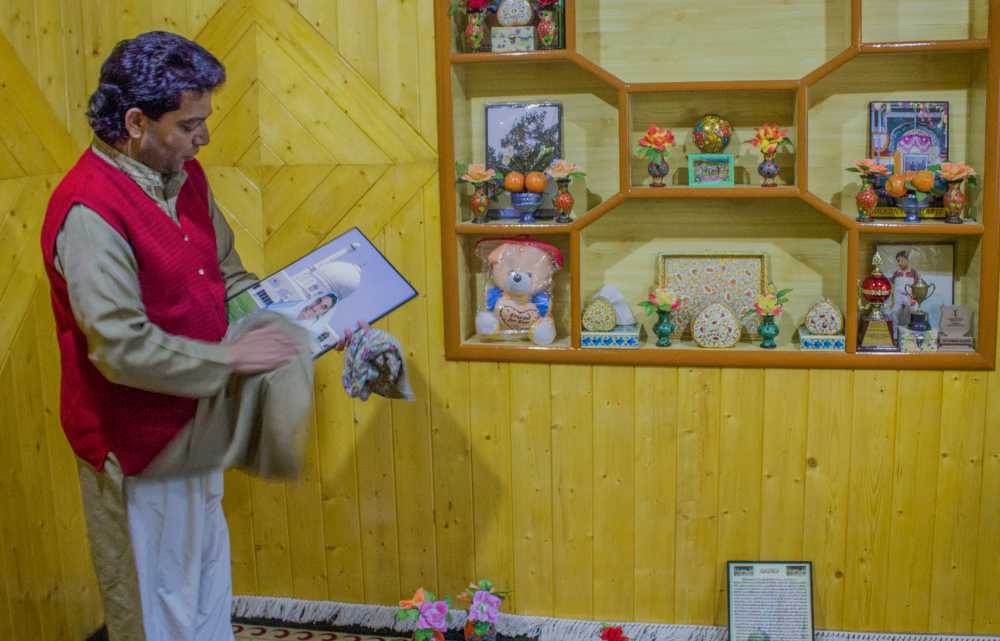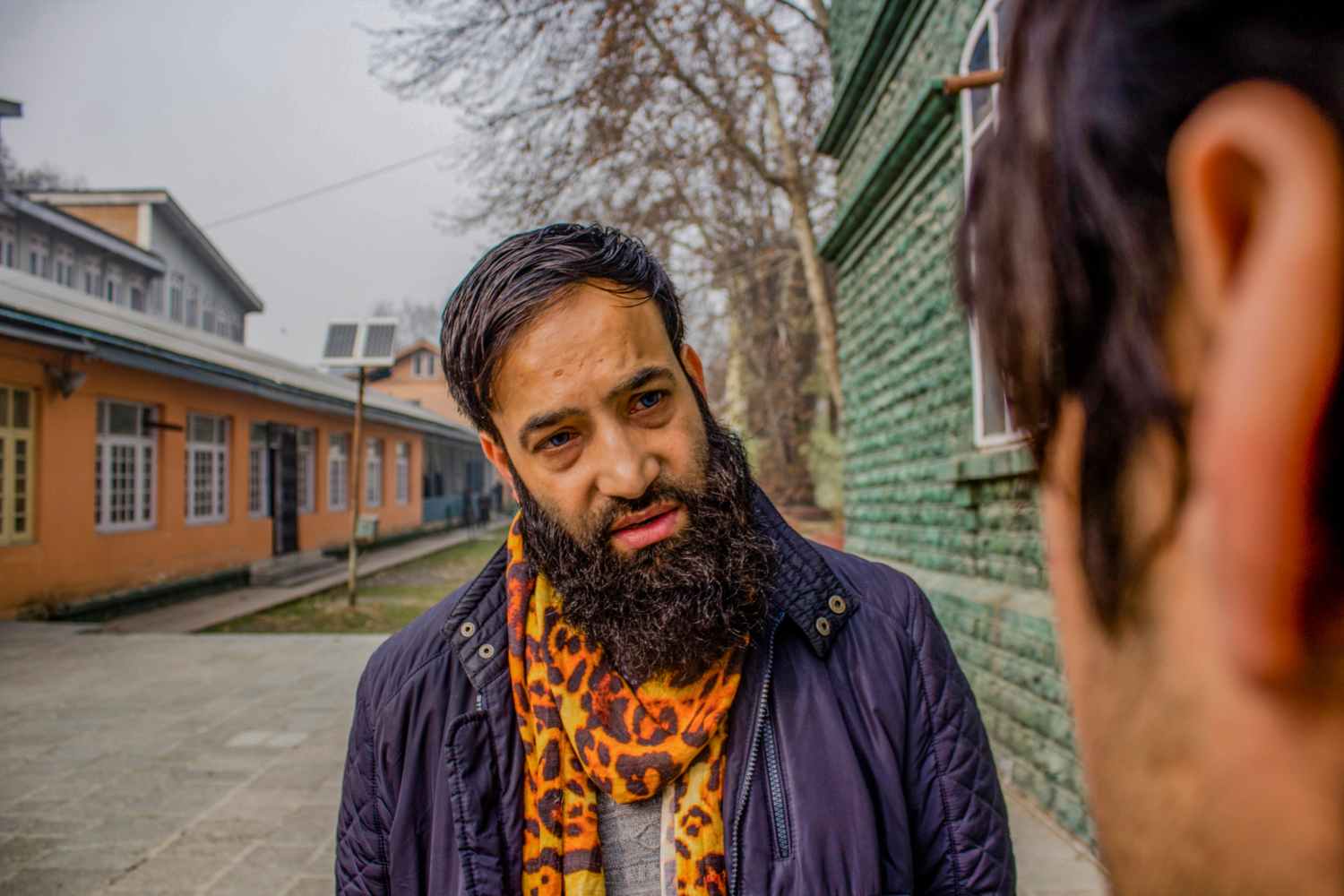As the third and final part of stories on the plight of the third gender in Kashmir, a well-known community member from Srinagar whose house becomes a convention centre every week is a representation of the larger struggle of her community caught between rejection and marginalization.
As third genders in twos and threes traverse the old lanes of Srinagar’s Dalgate, they turn heads around with their sudden and sizeable presence. The mass arrival starts soon after the Friday congregational prayers. They chirpily walk inside a neighbourhood — struggling to retain its medieval charm amid the emergence of new structures.
And then, one by one, they enter the polished house of Mohammad Aslam, who goes by the name of Babloo—the well-known third gender of the area.
Their host welcomes them with a hug and a smile. And soon, the otherwise hushed space comes alive, with chatty community members.
This is how the Friday convention looks like for Kashmir’s third genders, away from public gaze. They meet on this day to talk about their struggles and challenges.
The trials and tribulations faced by elderly trans-genders—who cannot work to make ends meet—remains the core issue of the convention.
ALSO READ: From Mohsin to Mohsina: The struggle of a teenage transgender from Kashmir
For years, they’ve been demanding pension for their old, jobs for their young.
However, the community’s destitute plight itself exposes the state’s callous approach towards Kashmir’s third gender.
Babloo gives a patient hearing to his community members during the weekly get-together.
But when expected to talk, the patron figure of an unofficial transgender association makes no bones about the street pestering that her tribe braves regularly.
“Eve-teasing on the streets is particularly done by teenagers and I think it’s the job of parents to tell their children that we’re people as well,” Babloo says, with a brooding stance. “Parents should teach their kids not to judge us by our appearance but by our virtues.”

Mohammad Aslam aka Babloo. (FPK Photo/Mir Yasir Mukhtar)
But while seeking the larger societal sensibility towards them, Kashmir’s third gender community seems aware of the rights given to their brethren in other parts of the world.
During their Friday summit, they often applaud Pakistan for giving “humane treatment” to its third gender community.
The third genders in Pakistan avail employment reservation in the government sector, apart from free travel and free education.
For many years now, their counterparts in Kashmir have been praying for the same reforms, within the legal framework that governs the valley.
“But such is the state of affairs in Kashmir that a pension scheme announced years ago for elderly trans-genders is yet to see the light of the day,” Babloo laments.
“Government does not take us seriously, as we appear nothing to them, but we’ve the hand of the Lord upon us!”
ALSO READ: The cross-dresser who became a deserter: The story of Shabnam Subhan
Being part of the strife-stricken society which is mired in throes of unabated conflict from over last seven decades also adds to the larger miseries of the otherwise sidelined and ignored community.
Many believe that basic social security and an inclusive integration should be on the agenda of the people, since transgenders are already marginalized.
On the extent to which such marginalization manifests, author of the recently published book “Hijras of Kashmir: A Marginalized Form of Personhood,” Dr. Aijaz Ahmad Bund recalls:
“I remember an incident about an elderly transgender shunned by her family. Without any roof over her head, she died on the roadside. Dogs were feeding on her flesh when a couple coming from a late night function witnessed the horrific scene and alerted the nearby neighborhood. As the semi-torn body was picked up, the question of where to bury her was raised. Since every graveyard has a community ownership, people were reluctant to give her space, and finally no one did, so I had to perform the last funeral rites over her dead body.”
Upon the release of Aijaz Bund’s seminal book, the debate on the trans-genders of Kashmir entered into the media limelight and into the view of the public.

Dr. Aijaz Ahmad Bund. (FPK Photo/Mir Yasir Mukhtar)
However, at the basic societal level, the transgender community still faces the same old challenges, struggling between rejection and marginalization.
These issues mostly drive their Friday conventions, where the members of the community pray to be freed from psychological persecution and wish that the inhumane apartheid against them comes to an end.
While Dr. Bund says that as an activist he has lead the cause for equality by filing a Public Interest Litigation (PIL) in J&K High Court, the issue remains to be addressed and is given no priority since the transgender community of Kashmir “is treated as invisible and in-existent”.
Also, in the confines of orthodox belief and a general lack of awareness, the massive challenges and equal rights of the transgender community in Kashmir remain at the periphery and away from public debate.
However, Babloo is hopeful.
He often concludes the Friday convention in his house by telling his tribe: “We’ve to struggle to make our place in a society that is yet come to terms with accepting transgender people, young and old, as their own.”
Like this story? Producing quality journalism costs. Make a Donation & help keep our work going.








